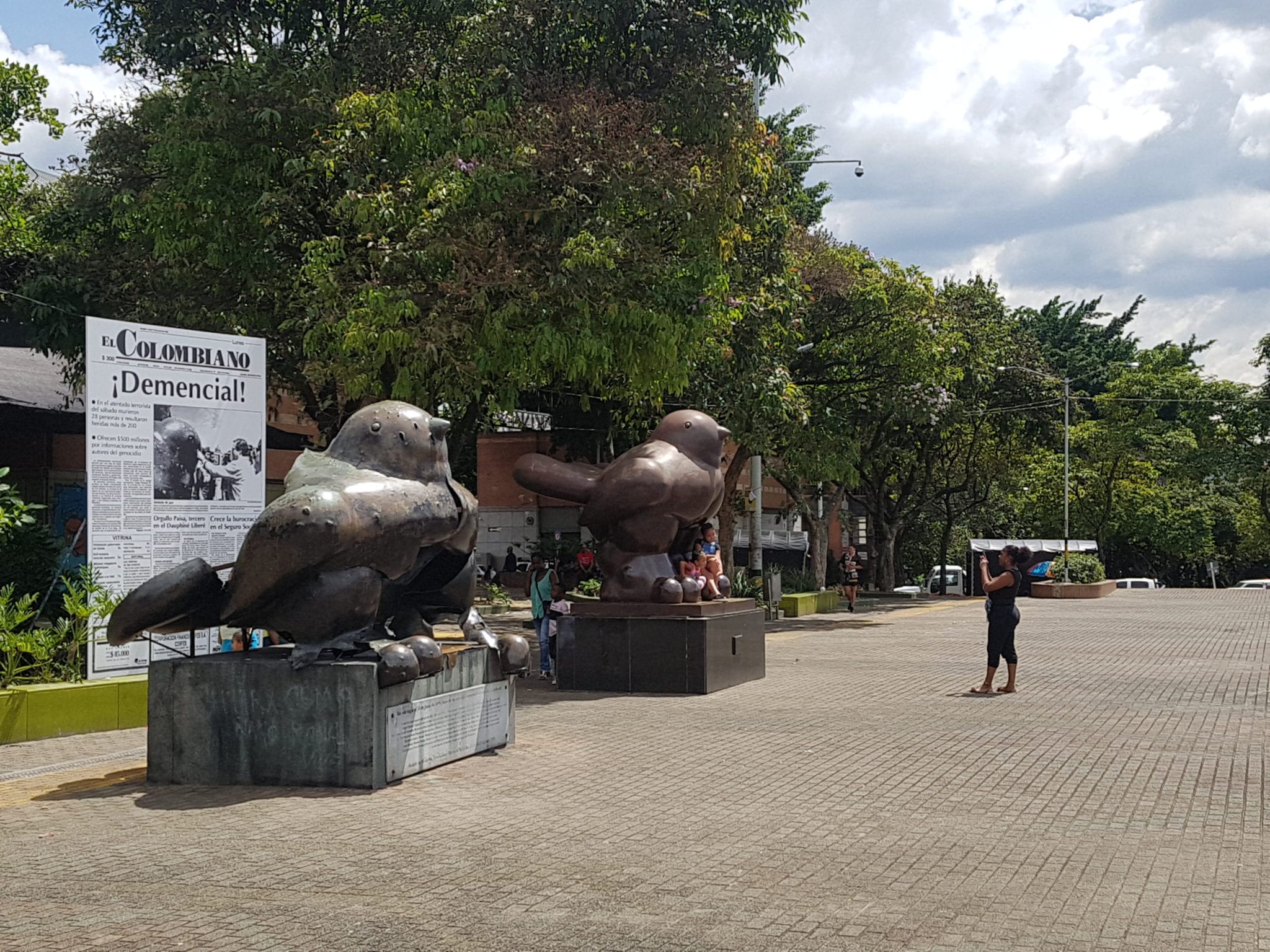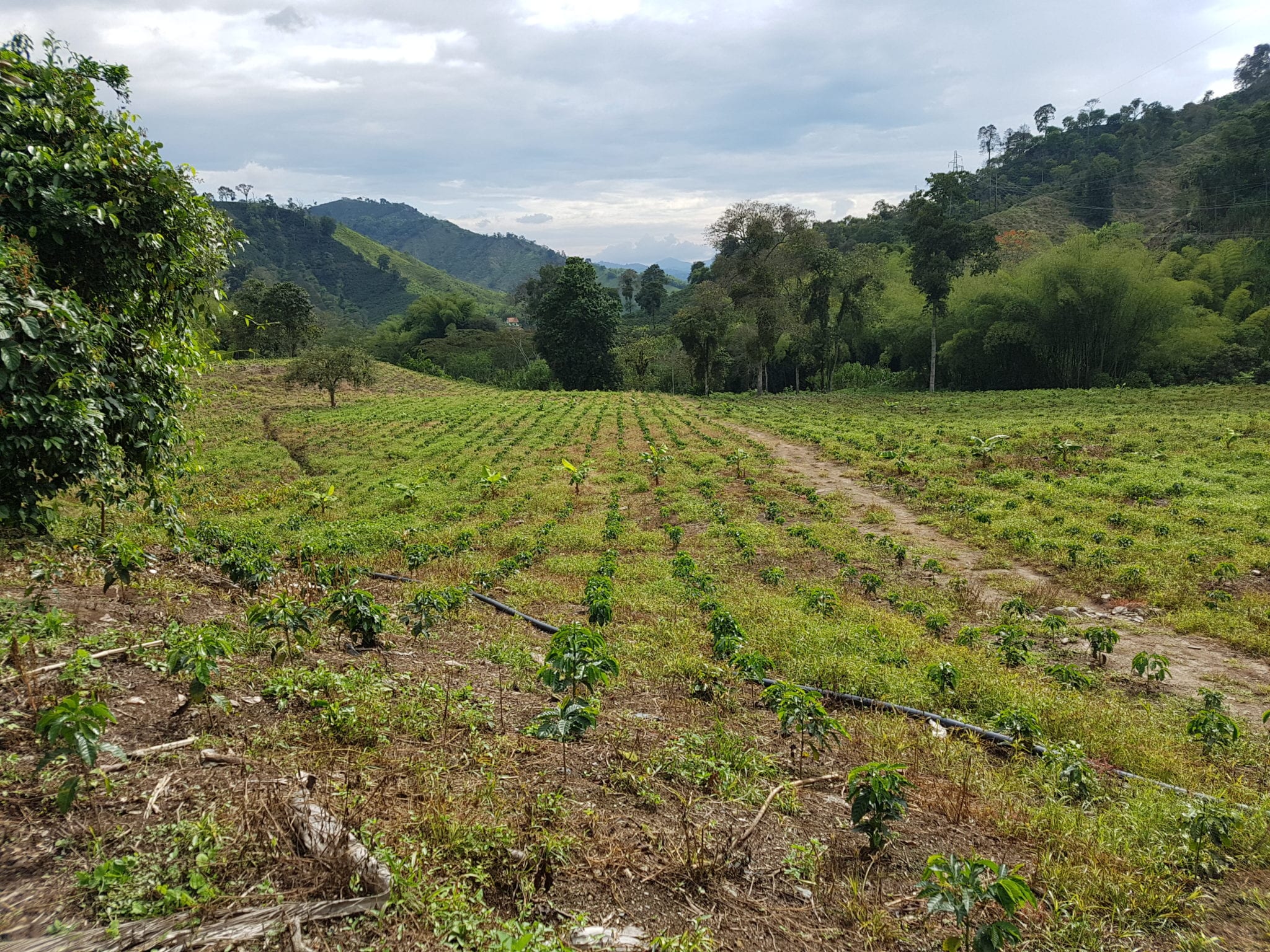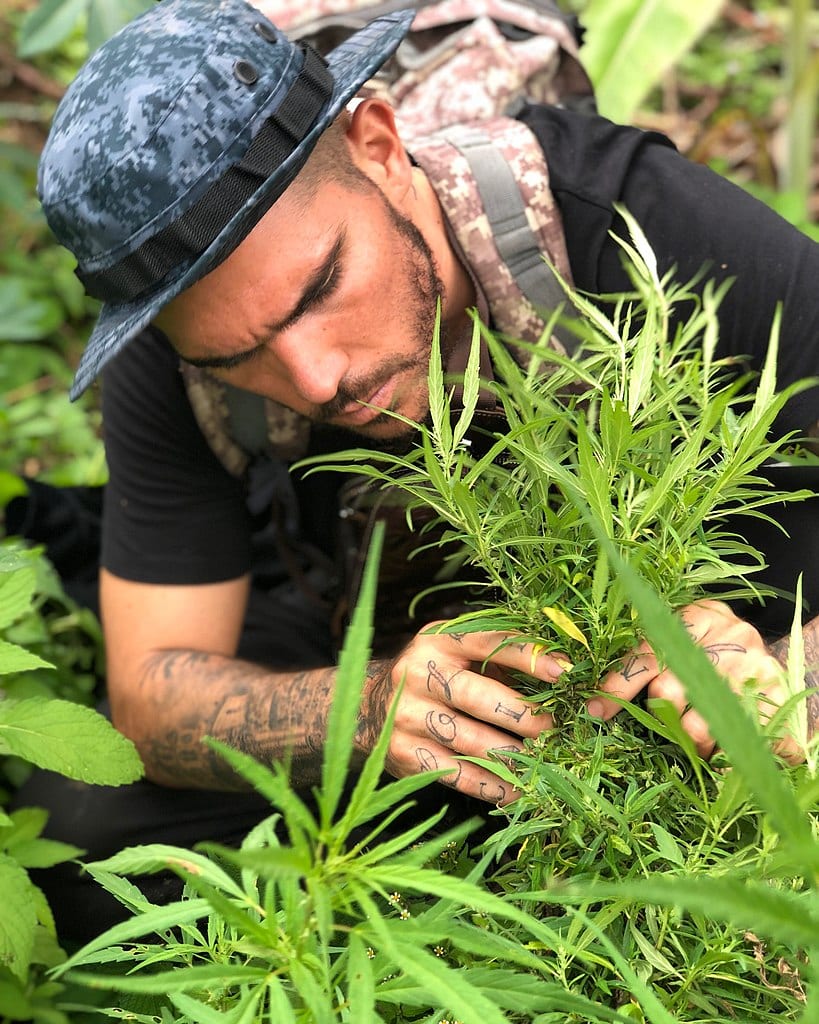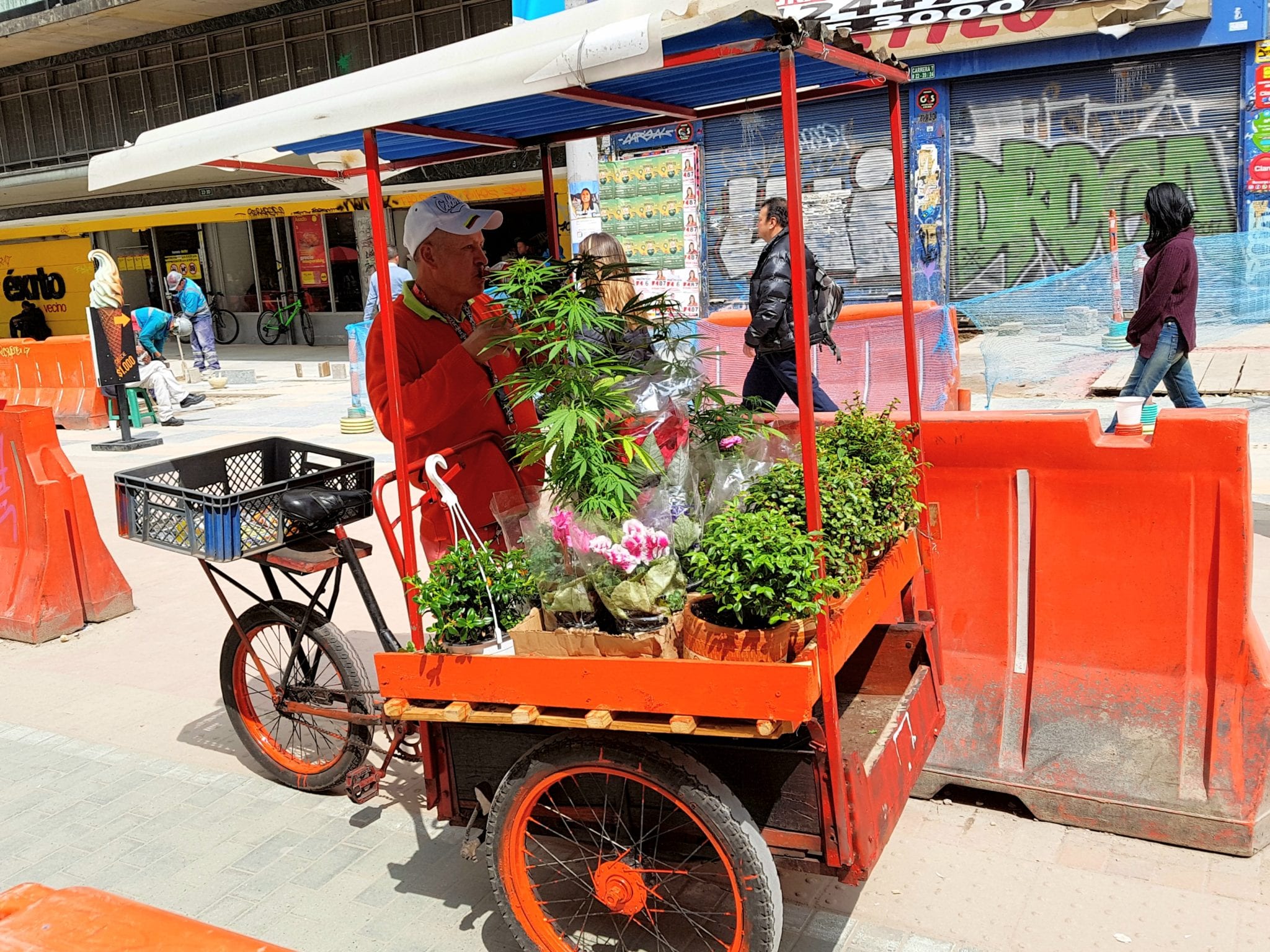Everyone loves a good Colombian drug story, except for Colombians themselves.
The release of a damning short-seller report from Hindenburg Research against the country’s biggest cannabis company, PharmaCielo, holds the potential to damage reputations of operators across what, until now, has been an promising sector in the global weed economy.
In recent years, the end of the majority of open conflict in Colombia has attracted waves of tourists for the same reason the country was avoided for decades: A fascination with its storied history of drug trafficking and bloodshed, and the notorious criminal at the centre of it all.
Pablo Escobar, head of the Medellín cartel, used to reign over the sprawling city with both real and imagined terror. But today, the valley-nestled metropolis has a world-class metro system and a thriving expat community.

In 1995, famed Colombian artist Fernando Botero’s bronze statue “The Bird” was loaded with 22 pounds of explosives and detonated during an outdoor concert in downtown Medellín. The bombing killed 30 people and guerrilla group FARC claimed responsibility for the attack. Botero insisted on not removing exploded statue, and donated a second “Bird of Peace” to sit beside it. Photo by Nick Laba
There, the majority of residents want you to remember Escobar as a man who caused irreparable harm to a nation and its people, not one deserving of the glorified cult of personality portrayed on Netflix.
Relative peace in the South American country has opened it back up to licit international markets. In particular, Colombia’s policy change to allow for commercial production of medical cannabis in 2015 sent a fledgling industry surging forward.
Backed by bags of foreign capital, numerous cultivators have quickly set up operations in one of the most ideal places to grow on the planet.
‘Brilliant’ or ‘bullshit?’
Ryerson University cannabis business professor, Brad Poulos, says there are two things in the value chain that make PharmaCielo’s strategy brilliant.
One is cultivation on the equator. There’s no better place to cultivate weed unless you’re going to grow it inside. Poulos said this keeps the cost of input down as low as possible. The company’s main operations are in Rionegro, a city just 680 kilometres north of the equator and an hour’s drive from Medellín.

A coffee farm near the city of Manizales. Colombia’s humid climate and topography make it an ideal place to grow many prized crops. Photo by Nick Laba
The second piece is doing most of the refinement in-country, and then shipping the more developed, downstream product internationally as pharmaceutical inputs or however they end up being used.
“I just thought that’s where this industry is going to go,” Poulos said. “There are going to be a lot of players that are going to do both of those things, and it’s interesting that they’ve put both of them together.”
For these reasons, he said, “I’ll be super disappointed if I found out it’s all built on bullshit.”
‘Si Pharmacielo no tiene qué esconder, debería contestar las preguntas’
Last Saturday, the headline “‘Si Pharmacielo no tiene qué esconder, debería contestar las preguntas’: director de Hindenburg Research” — or “‘If PharmaCielo has nothing to hide, it should answer the questions’: director of Hindenburg Research” — appeared in El Espectador, a major Colombian newspaper.
The article and Q&A detailed multiple accusations that, if true, would leave the company’s credibility in shambles and lead to criminal charges.
However, the producer’s parent company PharmaCielo Ltd. (TSXV: PCLO and OTCQX: PCLOF) issued a statement on March 3 — the day after the Hindenburg report — saying “this report represents a malicious attempt to manipulate PharmaCielo’s common shares by spreading false, distorted and misleading statements about the company,” and indicating it would be taking legal action against Hindenburg’s “libelous” claims.
Shares in the company have tumbled 57 per cent since the release of the report, to $0.83 a share.
At the top of the list of accusations is a self-enrichment scheme involving at least two of the company’s co-founders.
“Unbeknownst to investors, PharmaCielo’s key operating property in Rionegro, Colombia, was purchased through a bankrupt company co-founder (Federico Cock-Correa) via a Panamanian entity linked to Anthony Wile. It was then sold to PharmaCielo at a massive markup, allowing insiders to enrich themselves by an estimated $5.35 million by stepping in the middle,” the report reads.
Hindenburg claims Wile co-founded PharmaCielo just prior to the end of serving a five-year ban from being the director or officer in a public company, a penalty he consented to in 2010 as part of a settlement stemming from SEC charges of securities fraud, stock promotion and market manipulation.
The alleged scheme bears a stark resemblance to the real-estate fraud outlined in another Hindenburg report against Aphria in December, 2018, which led to a mass exodus of its senior management.
In its response, PharmaCielo didn’t mention the scheme nor Cock-Correa directly, but it did say Wile has not been an officer, director or consultant of PharmaCielo since December 2018.
Mugglehead reached out to PharmaCielo for a more detailed response to the claims. While no additional information was provided, a spokesperson reiterated that a comprehensive reply “dispelling the myths and false claims” is on the way.
“Let’s not forget that the report was issued by a NY-based short-seller who is looking to manipulate the stock price and generate millions of dollars in profit at the expense of honest shareholders,” Gal Wilder of communications agency Cohn & Wolfe said in an email.
To which Hindenburg founder Nathan Anderson replied: “We have a long track record of identifying malfeasance at public and private companies. PharmaCielo has a growing track record of being wholly unable to address our well-vetted allegations of malfeasance.”
PharmaCielo and its promise to Colombia
The short-selling world is full of unscrupulous folks who have no interest in creating value for anyone other than themselves, professor Poulos says, but he’s also a firm believer in the truth.
“So if it takes activist shareholders or activist short-sellers for us to find out the truth then I guess that’s the price of us learning it,” he said.
Read more: Cannabics Pharmaceuticals tests Colombian cannabis for anti-cancer properties
Regardless of who turns out to be right in the end, Poulous said the claims should be divided into two groups.
Some of the allegations involve self-dealing early on in the company. If any of that turned out to be true, Poulos said management who was around at the time should be terminated.
There is a separate set of allegations, including a fraudulent distribution deal involving PharmaCielo’s previous COO, dealing with current operations.

Many other companies, like Cannabis in Colombia whose founder is shown above, have moved to market following the liberalization of its weed laws. Photo by Melaniev5 via Wikimedia Commons
If only the first set of claims turns out to be true, there’s a company that could still do very well on executing its promising corporate strategy, Poulos says. However, if the operational accusations are found to be true, then PharmaCielo will likely be on the line for criminal misrepresentation.
Given corporate cannabis’s race to the gutter and COVID-19’s crippling effect on capital markets, the Hindenburg report couldn’t come at a worse time for PharmaCielo.
According to Poulos, more is riding on the validity of this report than you might at first think.
“Because they’re Canadian-domiciled — they have no operations here, but they’re domiciled here and they trade here — I wouldn’t be surprised if there’s a little bit of a ripple effect to the rest of the industry,” he said.
But if PharmaCielo comes toppling down, it could hurt the progress of a promising new cannabis economy at home.
“I think it’s likely to tarnish [other Colombian operators] for some time,” Poulos said.
Top image: A vendor pushing a cart with a cannabis plant through the streets of Bogotá, Colombia’s capital city. Even though recreational use is still technically illegal, enforcement is generally relaxed. Photo by Nick Laba
nick@mugglehead.com
@nick_laba















JAMES Barclay
March 12, 2020 at 5:52 pm
Pharmacielo, alledgely, has been in recent times run by criminals which allegedly might explain why their former CEO jumped ship to Blueberries Medical (a legitimate company by all accounts). Khiron Life Sciences is positioned to dominate the LATAM region and Pharmacielo should not tarnish anyone’s perception of this leading Marijuana region.